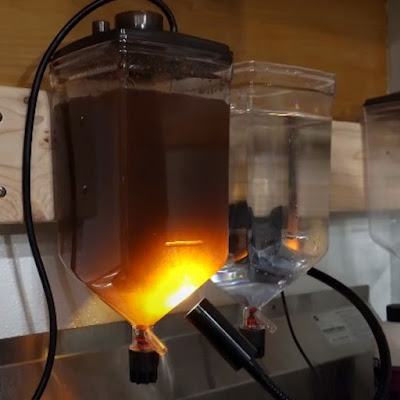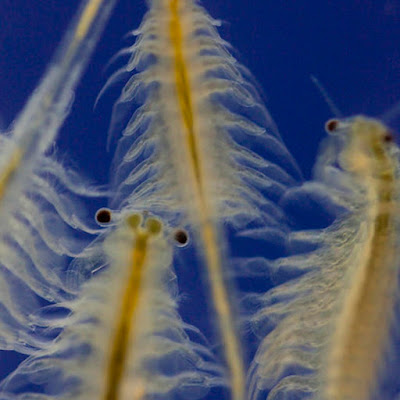Brine Shrimp Eggs are easy to hatch for Beginner Aquarists

Hatching brine shrimp eggs is indeed an easy and straightforward process, making it a perfect choice for beginner aquarists. Here's a step-by-step guide on how to hatch brine shrimp eggs: Materials Needed: Brine shrimp eggs (cysts): You can find these at pet stores or online aquarium supply retailers. Clean, non-chlorinated water : You can use tap water, but be sure to treat it with a dechlorinator to remove any harmful chemicals. Aquarium salt or marine salt mix : Brine shrimp thrive in saltwater conditions. You can find aquarium salt at pet stores or marine salt mix at aquarium supply stores. A small container : A clean plastic bottle or a dedicated brine shrimp hatchery kit will work well. An airstone or aeration device : Brine shrimp larvae need oxygen to hatch and survive. Setting up the Hatchery: Clean the container thoroughly with warm water, ensuring that there are no residues or chemicals that could harm the shrimp. Fill the container with the desired amount of water. The...
